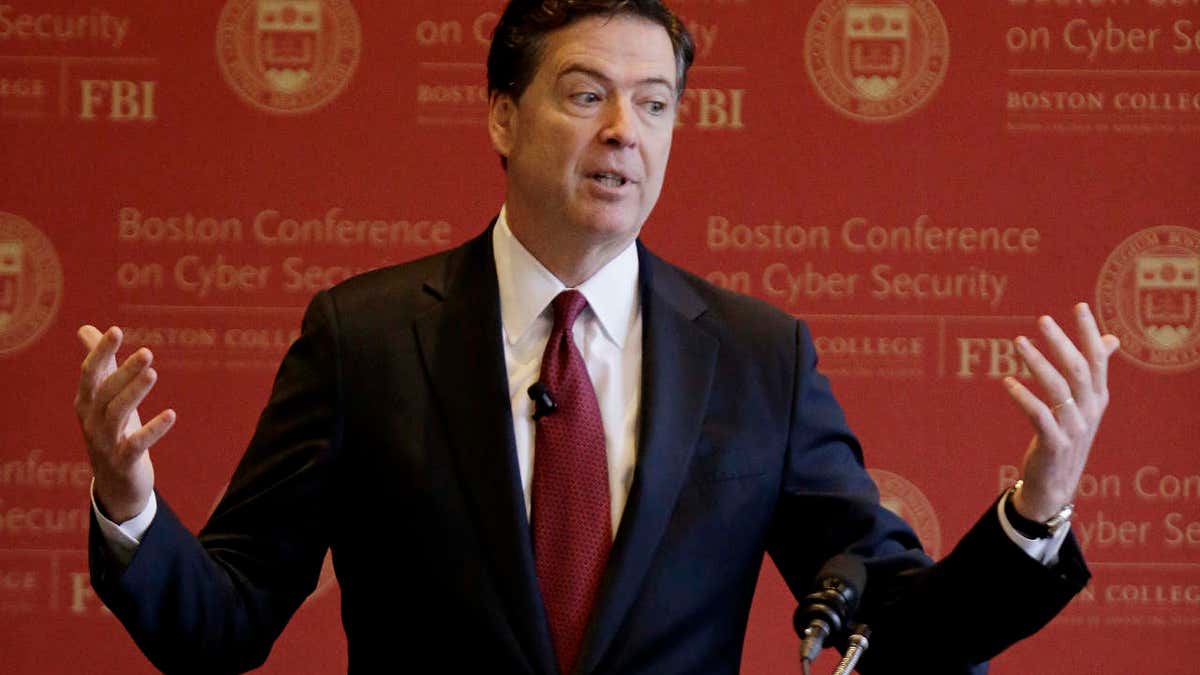
FBI Director James Comey gestures as he speaks on cyber security at the first Boston Conference of Cyber Security at Boston College, Wednesday, March 8, 2017, in Boston. (AP)
FBI Director James Comey said Wednesday that Americans should no longer have the expectations of complete privacy.
Comey, who was the keynote speaker at a cybersecurity conference at Boston College, said there is no longer “absolute privacy” in the U.S., Politico reported.
“Even our memories aren’t private," he said. "Any of us can be compelled to say what we saw. In appropriate circumstances, a judge can compel any of us to testify in court on those private communications. There is no place in America outside of judicial reach."
Comey’s comments came less than 24 hours after WikiLeaks released files from the CIA which appear to show that the agency has the ability to hack cars, TVs and smartphones.
Comey did not reference the wiretapping controversy during his speech to law enforcement officials and private-sector business leaders.
“All of us have a reasonable expectation of privacy in our homes, in our cars, and in our devices. But it also means with good reason, in court, government through law enforcement can invade our private spaces,” Comey said.
He said the FBI is renewing a focus on the challenges posed by encryption. He said there should be a balance between privacy and the FBI's ability to lawfully access information. He also said the FBI needs to recruit talented computer personnel who might otherwise go to work for Apple or Google.
"The cyberthreats we face are enormous. I don't know if we can stay ahead of them. And I think to say otherwise would be hubris," Comey said.
Comey added that he plans to serve his entire 10-year term despite the wiretapping controversy.
"You're stuck with me for another 6 1/2 years," he said.
The Associated Press contributed to this report.












































